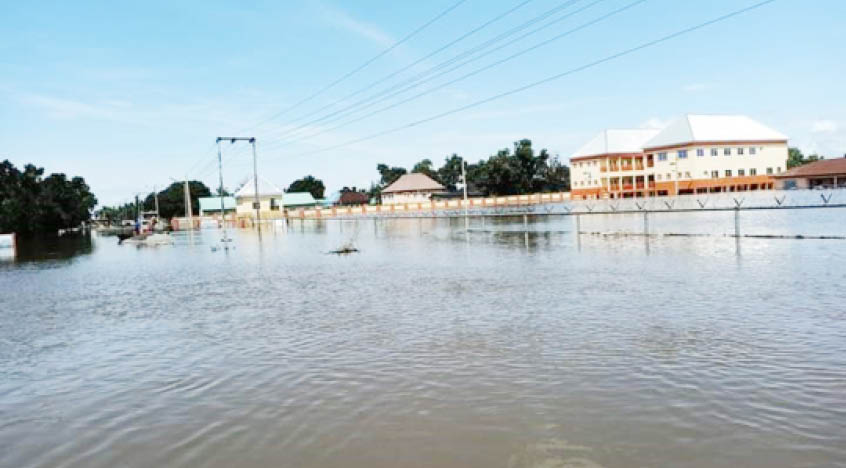Flood is a natural phenomenon which occurs as a result of heavy rainfall that runs down from a breakaway of water across water channels and indirectly flows over places with heavy hits, thereby causing damage. Flooding mostly takes place in an environment with unmapped gutters or areas of water with improper maintenance from dumping of trash which usually blocks the flow of water through its gutters and also restrict the water from reaching its destination.
In Yobe State, every rainy reason comes with heavy damage through flood issues where people and their properties turn out to be victims of major losses. The local government areas of Gashua, Bursari, Fune, Fika, Nguru, Jakusko, and even the capital city, Damaturu, experience the worst flooding because they have the largest water dams with bridges linking other places to the state.
- Airlines may suspend Nigeria-Dubai flights over visa hiccups
- Buhari: Nigeria ready for vaccine production
The recent occurrence of flood in some geopolitical zones of the state led to the displacement of numerous people from their homes, and destroyed farmlands and other properties. The Yobe state government has, in its effort, responded to the incidences through the State Emergency Management Agency (SEMA) by providing succour to the victims.
However, an urgent intervention is needed to control, strategise and check the incessant occurrence of floods almost every year.
According to infrastructural development analysts, the basic principle of controlling flooding include building bridges that link to waterways, providing drainage, supervising physical hygiene, reorganizing the buildings on waterways and public awareness on exercising regular maintenance of the environment in places with high risk of the disaster.
Building or restructuring bridges would help to achieve the basic control of floods in Yobe, because it’s the first step in causing the incidence.
Again, agencies charged with the responsibility, must supervise hygiene in the areas where water channels are constructed and sensitise the public on the need to be alert, cooperate with the government in clearing drainage and share useful information in times of flood.
Furthermore, providing dumping sites, monitoring the dumping of trash, encouraging the masses to engage in clearing waterways and gutters frequently will also help.
The government should also get the traditional rulers involved in sensitising the public.
Kasim Isa Muhammad wrote from Potiskum, Yobe State

 Join Daily Trust WhatsApp Community For Quick Access To News and Happenings Around You.
Join Daily Trust WhatsApp Community For Quick Access To News and Happenings Around You.

